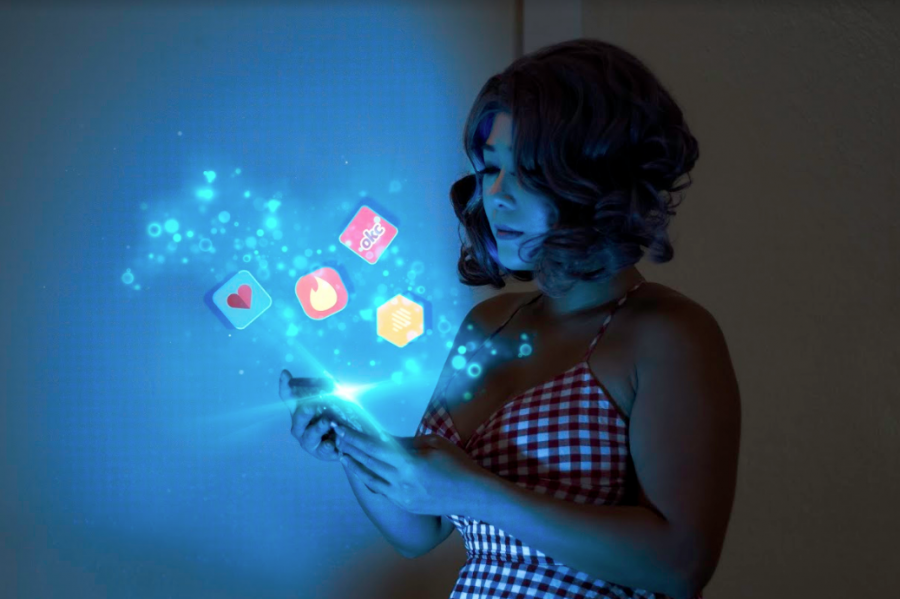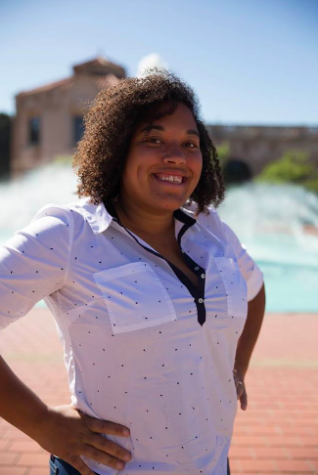Note: This story includes explicit descriptions of sexual assault.
Carrie met her rapist on OK Cupid while she was a student in the summer of 2014. Since they had a successful first date where the pair “hit it off,” Carrie – not her real name – agreed to a second date with him.
They spent time together, had a few drinks, then went back to his place in the North Park neighborhood of San Diego to watch a movie.
“I stupidly, admittedly, stupidly, got drunk,” Carrie said. “I was drinking and I was smoking a lot of marijuana and we were making out. I (was) still completely cognitively aware of what’s going on. I wasn’t inebriated to the point where I was blacked out or anything like that.”
After a while, the interaction between Carrie and her assailant began to feel uncomfortable as his actions started to become aggressive.
“It just stopped feeling good,” Carrie said. “It didn’t feel like this is what I wanted. And so, I told him, “No, I don’t want to do this yet. I just kind of want to take it slow.’”
She tried to stop their makeout session from going any further, which he initially agreed to. Then about 15 minutes later, he began to overpower her.
“He then proceeds to grab the back of my head and force me to give him a blowjob – I’m pushing away and telling him, ‘No, I don’t want this. Stop,’” she said. “Afterward he grabbed my hands – he was considerably stronger than me – and he forced himself on me.”
Carrie’s experience is not an uncommon one among college students.
Every year, there are at least 321,500 cases of sexual violence in the United States, according to the Rape, Abuse & Incest National Network. The National Sexual Violence Resource Center reported in 2015 that one in five women and one in 16 men are sexually assaulted while in college.
Though formal studies about the correlation between sexual assault and online dating apps in America have not yet been published, the link between the two is being documented globally.
The United Kingdom’s National Crime Agency reported in 2016 that sexual assault cases had increased by 450% in the previous six years, according to Vice News.
A 2015 study of 666 university students from four colleges in Hong Kong found an “alarming” connection between dating apps and sexual abuse. Students were twice as likely to be sexually assaulted if they used online dating apps, according to Quartz.com.
Only one assault case on campus specifically mentions the use of an online dating app, said Captain Matt Conlon of the San Diego State Police Department.
It is estimated, however, that 63% of all sexual assault cases — and 90% of cases on college campuses — are not reported to the police, according to the NSVRC. Other dating dangers in the digital age include cyberbullying, cyberstalking, catfishing and the distribution of intimate or sexual images, according to RAINN.
Survivors of assault may seek medical attention following their encounters, but they don’t always file reports against their attackers.
The morning following her rape, Carrie said she woke up in pain, so she sought medical attention.
“I went to Planned Parenthood and found out in the process he had torn part of my vagina and it basically required me to have stitches put in,” Carried said.
Fearful of her friends and family learning of what happened to her, Carried said she decided not to report her case to the authorities.
“(At Planned Parenthood), they asked me if I wanted to file a police report and I told him no,” she said. “I didn’t want my family to find out. I didn’t want my friends to find out. I didn’t want anyone to find out because I was ashamed for putting myself in that position.”
“I wish I had gone to the police and filed a report so that he could be held accountable and he could never do this to another woman,” Carrie said.
Too often the burden of prevention has fallen on the victims of sexual violence, but it is important to know how to stay safe. Online dating websites and apps could lead to precarious situations, but there are safety steps people can take to avoid dangerous scenarios.
When meeting up with someone for the first time, app users should choose a neutral, public place.
App users should avoid going to private locations until trust has been built and should let a friend know where they’ll be. They should also avoid meeting with anyone without a profile picture or who won’t share information about themselves, Conlon said.
“Always trust your instincts,” Conlon said. “If you’re not comfortable with an interaction with somebody online, you probably should avoid meeting them.
“If you are going to meet somebody, be sure to let your roommate or a friend know where you’re going, who you’re going to be meeting.”
Another safety tip is to meet someone through a video chat before meeting in person. By doing this, online daters can see if someone seems suspicious and confirm that the person they’re meeting matches the profile, according to RAINN.
Assault survivors at SDSU have a variety of services and departments they can turn to for help.
“We have an unusual set of services that SDSU offers that a lot of other police agencies maybe don’t have as much access to,” Conlon said. “We have one of our detectives that’s a sexual assault expert. It was a funded position specifically for that, and we’re hosting sexual assault investigative courses here on campus.”
Students can share their experiences confidentially with someone from Counseling and Psychological Services, receive information from the Title IX Office or attend weekly support group meetings at the Women’s Resource Center.
Students can also seek the advice at the Women’s Resource Center to learn about sexual assault prevention, said WRC Assistant Coordinator Jessica Nare.
“A lot of prevention that we work on is trying to address power differentials that exist in society,” Nare said. “(We challenge) people to think critically about gender roles.”
Almost five years later, Carrie said she still struggles with the emotional aftermath of her assault. She has nightmares about what happened, struggles with certain forms of intimacy and avoids North Park whenever possible from fear of running into her assailant.
She eventually tried online dating again, but avoided OK Cupid and turned to Tinder.
“I used Tinder, which admittedly is generally a place people go to for hookups,” Carrie said. “I was going through this weird space where I was trying to reclaim myself and reclaim my body and reclaim my sense of independence.”
Tinder is where she met her current boyfriend. In addition to her mother and a few therapists, her boyfriend is part of a small group people Carrie has felt comfortable sharing her story with.
“I told (my boyfriend) what happened one night and he was completely understanding and he just held me all night – he let me cry,” Carrie said. “I think that was like the first time I ever really told anybody what happened to me.”
After her experience, Carrie said she suggests taking extra safety precautions when meeting up with someone from an online dating app or website.
“Be safe, be smart, don’t go home with a guy on your second date,” Carrie said. “Get to know them before you agree to go to a place you’re not familiar with. Don’t be quick to trust people.”












